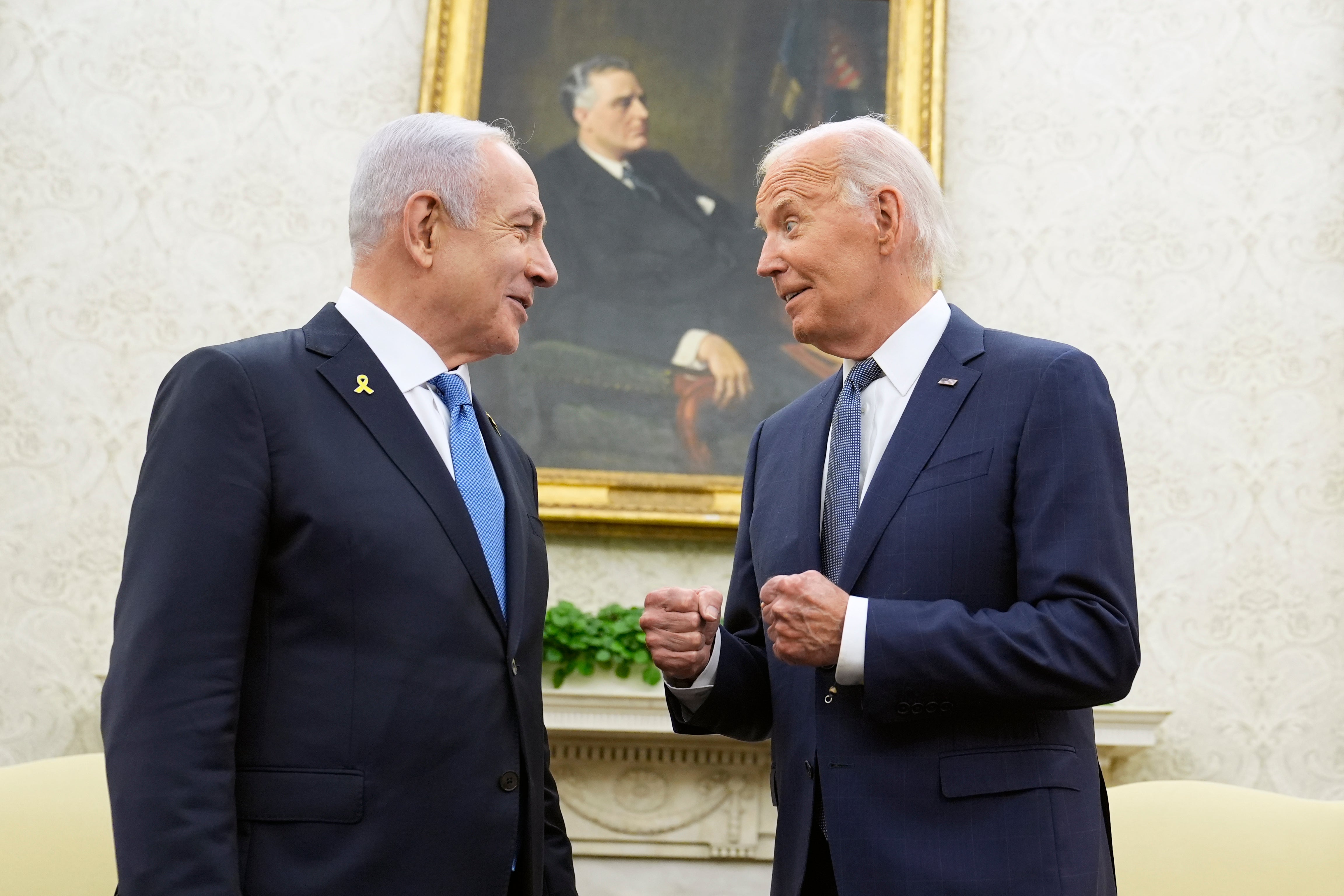Biden administration to send Thaad anti-missile system and US troops to Israel
The Pentagon says the United States will send a Terminal High Altitude Area Defense battery and troops to Israel
Your support helps us to tell the story
From reproductive rights to climate change to Big Tech, The Independent is on the ground when the story is developing. Whether it's investigating the financials of Elon Musk's pro-Trump PAC or producing our latest documentary, 'The A Word', which shines a light on the American women fighting for reproductive rights, we know how important it is to parse out the facts from the messaging.
At such a critical moment in US history, we need reporters on the ground. Your donation allows us to keep sending journalists to speak to both sides of the story.
The Independent is trusted by Americans across the entire political spectrum. And unlike many other quality news outlets, we choose not to lock Americans out of our reporting and analysis with paywalls. We believe quality journalism should be available to everyone, paid for by those who can afford it.
Your support makes all the difference.The United States will send a Terminal High Altitude Area Defense battery to Israel, along with the troops needed to operate it, the Pentagon said Sunday, even as Iran warned Washington to keep American military forces out of Israel.
Maj. Gen. Pat Ryder, Pentagon spokesman, said in a statement that Defense Secretary Lloyd Austin authorized the deployment of the THAAD battery at the direction of President Joe Biden. He said the system will help bolster Israel’s air defenses following Iran’s ballistic missile attacks on Israel in April and October.
The delivery of the sophisticated missile defense system risks further inflaming the conflict in the Middle East despite widespread diplomatic efforts to avoid an all-out war. The Iranian warning came in a post on the social platform X long associated with Foreign Minister Abbas Araghchi, who noted the earlier reports that the US was considering the deployment.
Israeli forces and Hezbollah fighters in Lebanon have been clashing since October 8, 2023, when the Lebanese militant group began firing rockets over the border in support of its ally Hamas in Gaza. Late last month, Israel launched a ground invasion into Lebanon.
Israel is widely believed to be preparing a military response to Iran’s October 1 attack, when it fired roughly 180 missiles into Israel.
In a brief exchange with reporters before leaving Florida on Sunday, Biden said he agreed to deploy the THAAD battery “to defend Israel.” Biden spoke at MacDill Air Force Base in Tampa after making a quick visit to to see the damage caused by Hurricane Milton and meet with first responders, residents and local leaders.

Ryder, in his statement, said the deployment “underscores the United States’ ironclad commitment to the defense of Israel, and to defend Americans in Israel, from any further ballistic missile attacks by Iran.”
It was not immediately clear where the THAAD battery was coming from or when it will arrive. Lt Col Nadav Shoshani, an Israeli army spokesman, declined to provide any timeline for its arrival, but thanked the US for its support.
The US deployed one of the batteries to the Middle East along with additional Patriot battalions to bolster protections for US forces in the region late last year after the October 7 2023, attack on Israel by Hamas militants. Ryder also said that the US sent a THAAD battery to Israel in 2019 for training.
It also is not unusual for the US to have a limited number of troops in Israel, which the US considers a key regional ally. There generally has been a small number of forces there consistently as well as routine rotational deployments for training and exercises.
The THAAD will add another layer to Israel’s already significant air defenses, which include separate systems designed to intercept long-range, medium-range and short-range threats. Israel recently retired its US-made Patriot systems after decades of use.
According to an April report by the Congressional Research Service, the Army has seven THAAD batteries. Generally each consists of six truck-mounted launchers, 48 interceptors, radio and radar equipment and requires 95 soldiers to operate.
The THAAD is considered a complementary system to the Patriot, but it can defend a wider area. It can hit targets at ranges of 150 to 200 kilometers (93 to 124 miles), and is used to destroy short-range, medium-range and limited intermediate-range ballistic missile threats that are either inside or outside the atmosphere.
The US Missile Defense Agency is responsible for developing the system, but it is operated by the Army. An eighth system has been funded and ordered and is expected to be in the field sometime next year.
